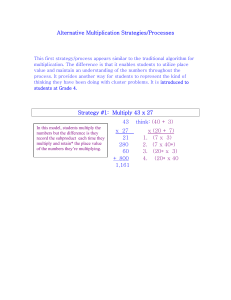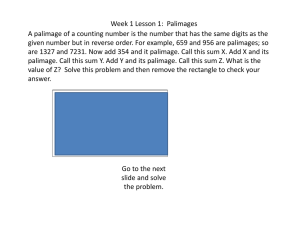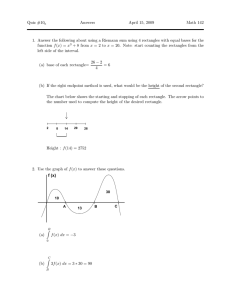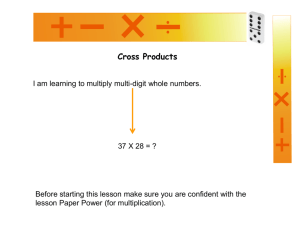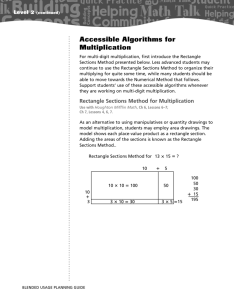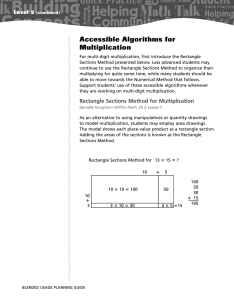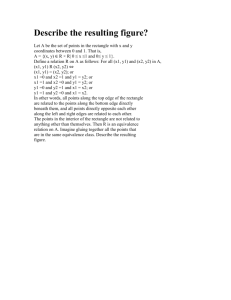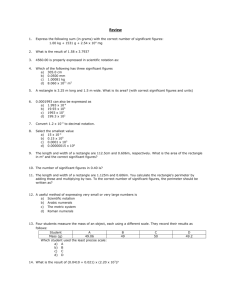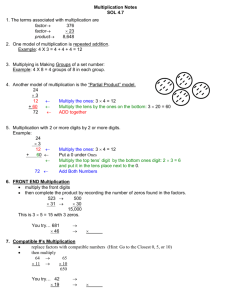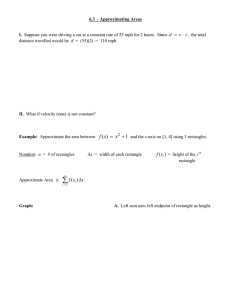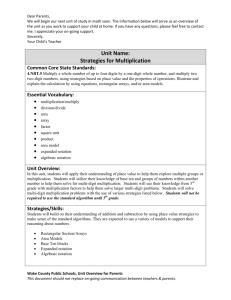Unit 7, Lesson 2 The Area Model for Multiplication
advertisement
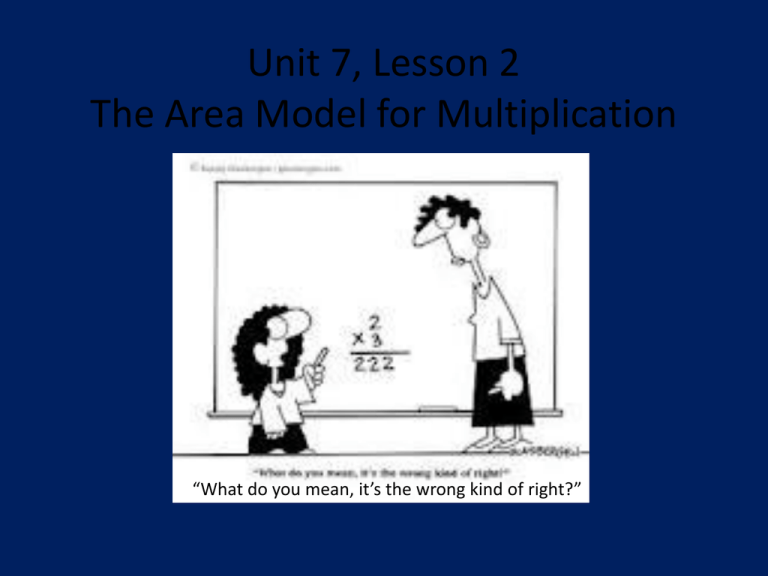
Unit 7, Lesson 2 The Area Model for Multiplication “What do you mean, it’s the wrong kind of right?” Quick Practice • Goal: Practice multiplying with tens, hundreds, and thousands. • 60 x 30 = 6 x 3,000 = • 60 x 300 = 600 x 300 = • 6x3= 60 x 3 = Introducing Rectangle Sections 67 x 43 = ? 67 43 How would we find the area of this rectangle? How can we use this information to solve 67 x 43? • When you multiply larger numbers, you often need to break the problem into smaller parts 60 + 7 40 60 x 40 40 x 7 + 3 60 x 3 7x3 Multiply Them & Add ‘Em Up…. • 60 x 40 = 2,400 2,400 • 60 x 3 = 180 180 • 40 x 7 = 280 280 • 7 x 3 = 21 + 21 2,881 Questions to Ponder • How are the numbers 63 and 67 expressed? Why? • They are expressed as tens and ones to make the multiplication easier. • How can we use what we know about zeros patterns in products to find the partial products in the smaller rectangles? • We know that 40 x 60 has 2 zeros, 40 x 7 has 1 zero, and 3 x 60 has 1 zero Questions to Ponder • Does it matter in what order we multiply to get the partial products? • No • What do we do with all of the partial products to get the total product? • Add them. • Does it matter in what order we add the partial products? • No • So, how are the Rectangle Sections used to solve the multiplication? • The area of each of the 4 smaller rectangles is found. Then the 4 areas are added to find the total area. Let’s Try One More… 39 x 54 39 54 39 x 54 50 30 + 4 30 x 50 30 x 4 9 x 50 4x9 + 9 39 x 54 • 30 x 50 = 1,500 • 9 x 50 = 450 • 30 x 4 = 120 • 9 x 4 = 36 Add ‘Em up…. 1,500 450 120 + 36 2,106 Solve with Expanded Notation 43 x 67 • Write 43 and 67 using expanded notation – 43 = 40 + 3 – 67 = 60 +7 • 40 x 60 = 2,400 40 x 7 = 280 • 3 x 60 = 180 3 x 7 = 21 • Add ‘Em Up …2,400 + 280 + 180 + 21 = 2,881 On Your Own… •Turn to page 266 in your hard math book (volume 2) •Solve problems 5 and 6 using either Rectangle Sections or Expanded Notation Homework… •Homework & Remembering page 163 (odd)
